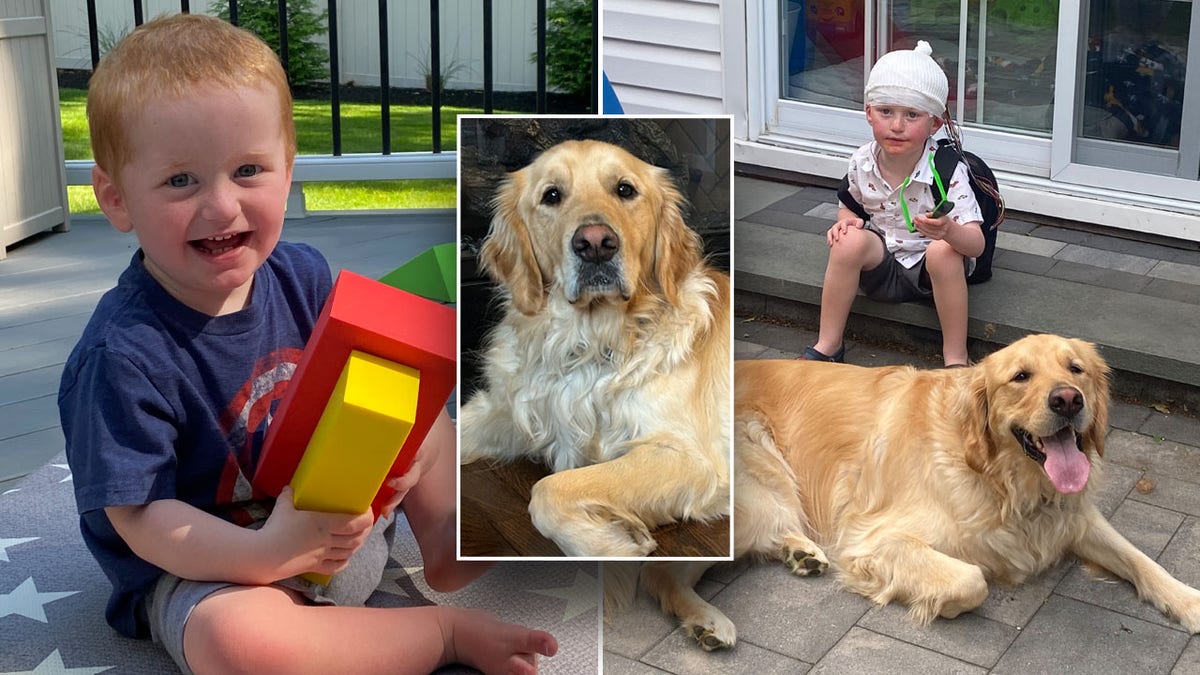The Road to Having a Service Dog
This is a re-writing of several articles I have written over the last few years, consolidating several articles into one. So, many parts of this should seem familiar to others who have read some of my articles before.
Service animals seem to have almost a mystic quality nowadays. There seem to be so many things that a dog can do to help their handlers daily. Over the last few years, I have seen such an uptick in the number of teams I have seen roaming about.
Being a member of so many online groups I see so many new people come into the groups asking, "how do I get a service dog?". Most are brand new to the idea of having a service dog and have not really researched how to qualify, or if they are qualified, for getting a service dog let alone the pros and cons of having one. So, that's what I am going to try to help with, based on what I have seen and gone through.
Please note: I live in the US so most of the things included here are specifically set for users within the US. As always make sure you double-check behind me, this is not intended to be legal advice, simply as a guide to help individual readers researching this subject.
Do you qualify to have a service dog?
To qualify for a service dog, you must be considered disabled as described through the ADA (American Disability Act).
In normal terms (Pulled from the ADA Statute):
The person must have an impairment that Substantially limits at least one Major life activity.
In layman's terms, you must have a substantial problem that you need help with and have an agreement with your doctor that a service dog would improve your quality of life.
NOTE: While the Doctor's Note is not a requirement for having a service dog (here in the US) I find it a very important step as it can ease many problems down the line. "Doctor's Letters for Service Dogs (United States)".
Research!
One thing I have found true within the service dog world is research is very important! Whether it is the multiple laws handlers must know, to what breed would be best, which trainer to use, what tasks would be best for you, Ad Infineum…
Fortunately, in today's age, we have so many good places for reference. Service dog groups on social media, the internet, and of course, this site can provide a wealth of information, especially for those who are just getting started on their journey.
One word of warning though, always remember that different people can tend to look at some service dog ideas through their rose-colored glasses and believe their way is the only way to look at some subjects. While doing your research try to verify your findings.
Conversations!
Another important subject that is often overlooked. Having a service dog is a lifelong commitment, not only for the handler but also for those close to the handler. Typically, the dog goes everywhere with its handler, it is the handler's medical device. We, prospective service dog handlers, tend to forget how this can impact the family dynamic. Things like vacations, date nights, school, work, and the like must all be taken into the equation on whether a service dog would be a good fit for you or not.
Medical Conversation
While service dogs are much more popular now, many medical professionals have very little to no experience with what they can provide. But, in my opinion, it is important to get them on board in including the dog as part of your ongoing therapy. This could be some research you must do to show the medical professional what a service dog could be able to provide for you. You may have to advocate for yourself. Thankfully there are now many studies that have been done on the advantages of service dogs.
Family Conversation
This is the one that, again in my opinion, is the most important when it comes to making sure everyone agrees. For me, this was a very long conversation that went on until a consensus was made between my wife and me.
My wife understood that a service dog would help me with my disabilities, but she is a planner and saw a lot of possible problems, from costs to care. We went through every item we could think of to make sure this was something we could both agree on. If this is something that we could not agree on then the answer for getting a service dog would have been "NO"!
Extras
Some things that I found helped me out with the pre-service dog conversations I have been a part of.
Service animals seem to have almost a mystic quality nowadays. There seem to be so many things that a dog can do to help their handlers daily. Over the last few years, I have seen such an uptick in the number of teams I have seen roaming about.
Being a member of so many online groups I see so many new people come into the groups asking, "how do I get a service dog?". Most are brand new to the idea of having a service dog and have not really researched how to qualify, or if they are qualified, for getting a service dog let alone the pros and cons of having one. So, that's what I am going to try to help with, based on what I have seen and gone through.
Please note: I live in the US so most of the things included here are specifically set for users within the US. As always make sure you double-check behind me, this is not intended to be legal advice, simply as a guide to help individual readers researching this subject.
Do you qualify to have a service dog?
To qualify for a service dog, you must be considered disabled as described through the ADA (American Disability Act).
In normal terms (Pulled from the ADA Statute):
The person must have an impairment that Substantially limits at least one Major life activity.
In layman's terms, you must have a substantial problem that you need help with and have an agreement with your doctor that a service dog would improve your quality of life.
NOTE: While the Doctor's Note is not a requirement for having a service dog (here in the US) I find it a very important step as it can ease many problems down the line. "Doctor's Letters for Service Dogs (United States)".
Research!
One thing I have found true within the service dog world is research is very important! Whether it is the multiple laws handlers must know, to what breed would be best, which trainer to use, what tasks would be best for you, Ad Infineum…
Fortunately, in today's age, we have so many good places for reference. Service dog groups on social media, the internet, and of course, this site can provide a wealth of information, especially for those who are just getting started on their journey.
One word of warning though, always remember that different people can tend to look at some service dog ideas through their rose-colored glasses and believe their way is the only way to look at some subjects. While doing your research try to verify your findings.
Conversations!
Another important subject that is often overlooked. Having a service dog is a lifelong commitment, not only for the handler but also for those close to the handler. Typically, the dog goes everywhere with its handler, it is the handler's medical device. We, prospective service dog handlers, tend to forget how this can impact the family dynamic. Things like vacations, date nights, school, work, and the like must all be taken into the equation on whether a service dog would be a good fit for you or not.
Medical Conversation
While service dogs are much more popular now, many medical professionals have very little to no experience with what they can provide. But, in my opinion, it is important to get them on board in including the dog as part of your ongoing therapy. This could be some research you must do to show the medical professional what a service dog could be able to provide for you. You may have to advocate for yourself. Thankfully there are now many studies that have been done on the advantages of service dogs.
Family Conversation
This is the one that, again in my opinion, is the most important when it comes to making sure everyone agrees. For me, this was a very long conversation that went on until a consensus was made between my wife and me.
My wife understood that a service dog would help me with my disabilities, but she is a planner and saw a lot of possible problems, from costs to care. We went through every item we could think of to make sure this was something we could both agree on. If this is something that we could not agree on then the answer for getting a service dog would have been "NO"!
Extras
Some things that I found helped me out with the pre-service dog conversations I have been a part of.
- Make your family part of the process and let them have some equity within the process.
- Take your family to your doctor's appointment and have the doctor help show the need. Third parties are always a great resource as they tend to not have any "skin in the game". Show the family your research on how a service dog can help you.
- Have solutions to arguments that will come up. What will we do with the dog when we go on vacation? What happens with the dog when you go to work or school? (Pro/Con lists?) Don't worry if you don't have an answer to a question, but make sure you figure it out and let the person know of the solution.
- Typically, this means some serious conversation time. Listen to what they have to say and take that into account, and they should be doing the same. Concessions may need to be made, but an agreement must be made.
- This communication should continue throughout the entire process of getting a service animal. No agreement means no service dog.
The Road to Having a Service Dog, The Framework (US)
So, you have made it this far! Ready for the "meat and potatoes"? Part one we focused on the basics of finding out and agreeing that a service dog would not only be advantageous for the prospective handler but should also be a good fit as a new family member.
As mentioned before your own research is going to be a major player, as it will be throughout your service dog team career.
Budget/Costs
This is always a big one. If you were to go out and buy a trained service dog, they start at about $10,000 (US) and up.
This is a very handler-centric topic. Everyone is going to be different. In the service dog world, we have a couple of breeds we refer to as the "Fab-4", these are Standard Poodle, Labrador Retriever, Golden Retriever, and the Collie. These breeds are the most seen breeds working as service dogs. Their breeds are typically well-suited for most service dog work and their temperament is typically perfect.
This does not mean that those are the only breeds that can do service work. Any dog may be able to become a service dog no matter what the breed. With that being said, only about 30% of all dogs have what it takes to become a service dog.
As a prospective handler, a lot of time should invested in researching the breeds they are interested in. There are many good resources out there to base out a list of good breeds. Doctor Morris over at Psychiatric Service Dog Partners posted a great article on the subject, "Choosing the Right Dog".
Remember this is a lifelong obligation so it is important to find the best fit for you and your family, so being honest with yourself when doing your research is so very important. For example, I have a Border Collie, their energy level is off the charts! Two hours of hard playtime is the minimum for us but we also have to keep him mentally engaged on top of his work schedule and long weekend outings. These can be things that other handlers may not be able to keep up with. What about if the prospective handler is 5'0" and weighs 100 pounds, would a large breed, 100+ pound dog, be ideal?
I found that a pro/con list of breeds helped me out a lot, followed by my getting to know the breeds which narrowed my list helped profusely.
Where to get the Prospective Service Dog?
While there is no real wrong answer to this it is again doing to be a very handler-centric topic. The one thing I would stress is that if the prospect handler is not going to use a group or organization for their prospective service dog get help when picking out a prospective service dog! I would suggest finding a dog trainer who has experience with service dogs, paying them to look over some of the dogs you have found or an interesting litter. This in no way guarantees a successful service dog but will majorly increase the odds. I always suggest an outside trainer for several reasons.
These are normally seen when the prospective handler goes through a program or service dog organization for their dog.
How do you want to train the dog? There are many ways, some may be a good fit for the prospective handler while others might be out of their grasp for many reasons.
Owner Training:
This option of dog training has been very popular over the last few years, it has also become very problematic at the same time. There is nothing to stop an individual from training their dog for service work themselves. In many cases, it can increase the bond between a handler and a dog.
With the advent of so many online tools now the internet has become a great source of information that can be used to assist in training. The main cost for going this route is time and the wherewithal to see the training to its "end" (training never really ends). Owner training normally takes about 2 years which not only is a huge time expenditure, but it can be hard to find the gumption to finish it up. It is a very long road!
Why can it be problematic? The training is not problematic, it is some people who cause the problems.
Some people have decided that their pets should be able to go wherever the owner goes. Owner training stipulations have made it very easy for non-service dog teams to simply label their pet as a service dog. Remember there is no government-provided certification for a service dog team. When this is done, and the dog is not highly trained it tends to cause scenes in public access areas which in turn makes the entire service dog community look bad and tends to cause us a lot of access problems.
Another reason for owner training being problematic is that there are no real standards based on the law for how a service dog team should conform to themselves. While there are several standards out there I like the IAADP standards.
Dog Trainer Based:
Many trainers specialize in training service dog tasks, from basic obedience through advanced tasks. There are many options available for training this way. Board and train is where you pay for the trainer to house the dog through their training with the trainer. These tend to be the most expensive but also tend to have the best results. Trainer visits, where the prospective handler either takes the dog for one one-on-one or group sessions on a set schedule. This gives the handler instructions on what to work on till the next session. These are normally cheaper, but there is a good amount of work to be done by the handler.
Hybrid Training:
This is how I handled training. Most of the training I was able to do myself, but there were times when I would hit a spot where I was simply lost. When I would hit that wall, I would reach out to a trainer and get the help we needed.
Tasks:
Almost forgot this one. The service dog task is the action the dog does to notify its handler of a situation. Deciding on what tasks are needed is based 100% on what the handlers' needs are. I think the easiest way to decide on specific tasks is through conversations with family and medical professionals. The reason is that the symptoms tend to be different for everyone with the same diagnosis. The example I normally give for this is PTSD. While I suffer from PTSD my symptoms are not going to be the same as the next person, meaning while I use my dog to clear rooms and check corners as we are walking does not mean everyone is going to need that also. This is one reason service dogs cost so much, every task is custom fit to the handler.
As mentioned before your own research is going to be a major player, as it will be throughout your service dog team career.
Budget/Costs
This is always a big one. If you were to go out and buy a trained service dog, they start at about $10,000 (US) and up.
- Most trained service dogs run from 20-40k.
- Owner Trained: About 10k when my time, called in trainer help and all considered.
- Vet bills: (cost dependent) I normally spend 200-500/year.
- General Upkeep including grooming: For me around 150/month.
- Insurance: (emergency care) 200/year
- Insurance Riders for Home Insurance Policies: Depends on the company.
This is a very handler-centric topic. Everyone is going to be different. In the service dog world, we have a couple of breeds we refer to as the "Fab-4", these are Standard Poodle, Labrador Retriever, Golden Retriever, and the Collie. These breeds are the most seen breeds working as service dogs. Their breeds are typically well-suited for most service dog work and their temperament is typically perfect.
This does not mean that those are the only breeds that can do service work. Any dog may be able to become a service dog no matter what the breed. With that being said, only about 30% of all dogs have what it takes to become a service dog.
As a prospective handler, a lot of time should invested in researching the breeds they are interested in. There are many good resources out there to base out a list of good breeds. Doctor Morris over at Psychiatric Service Dog Partners posted a great article on the subject, "Choosing the Right Dog".
Remember this is a lifelong obligation so it is important to find the best fit for you and your family, so being honest with yourself when doing your research is so very important. For example, I have a Border Collie, their energy level is off the charts! Two hours of hard playtime is the minimum for us but we also have to keep him mentally engaged on top of his work schedule and long weekend outings. These can be things that other handlers may not be able to keep up with. What about if the prospective handler is 5'0" and weighs 100 pounds, would a large breed, 100+ pound dog, be ideal?
I found that a pro/con list of breeds helped me out a lot, followed by my getting to know the breeds which narrowed my list helped profusely.
Where to get the Prospective Service Dog?
While there is no real wrong answer to this it is again doing to be a very handler-centric topic. The one thing I would stress is that if the prospect handler is not going to use a group or organization for their prospective service dog get help when picking out a prospective service dog! I would suggest finding a dog trainer who has experience with service dogs, paying them to look over some of the dogs you have found or an interesting litter. This in no way guarantees a successful service dog but will majorly increase the odds. I always suggest an outside trainer for several reasons.
- A breeder or kennel wants to sell, they are likely to say whatever it takes to do so.
- A pound typically lacks the experience to make good judgments when talking about service dog work, and they want to get the dogs.
- Pros:
- Best price point normally.
- Helping to find animals a home.
- Cons:
- Worst washout rate for potential service dogs.
- Age. Normally a service dog works for about 8-10 years. Getting an older dog could reduce this time.
- Unknown breed traits.
- Pros:
- Breed Standards.
- Health guarantees.
- Can view the parents and their overall health and traits.
- Cons:
- Cost.
- Contractual terms.
These are normally seen when the prospective handler goes through a program or service dog organization for their dog.
- Pros:
- They find the dog.
- They train the dog.
- They train the handler.
- Refresher training.
- Cons:
- Most expensive option normally.
- You get the dog they put with you.
- Contractual obligations. Read the contract carefully!
- Normally a very long wait for approval as well as delivery.
How do you want to train the dog? There are many ways, some may be a good fit for the prospective handler while others might be out of their grasp for many reasons.
Owner Training:
This option of dog training has been very popular over the last few years, it has also become very problematic at the same time. There is nothing to stop an individual from training their dog for service work themselves. In many cases, it can increase the bond between a handler and a dog.
With the advent of so many online tools now the internet has become a great source of information that can be used to assist in training. The main cost for going this route is time and the wherewithal to see the training to its "end" (training never really ends). Owner training normally takes about 2 years which not only is a huge time expenditure, but it can be hard to find the gumption to finish it up. It is a very long road!
Why can it be problematic? The training is not problematic, it is some people who cause the problems.
Some people have decided that their pets should be able to go wherever the owner goes. Owner training stipulations have made it very easy for non-service dog teams to simply label their pet as a service dog. Remember there is no government-provided certification for a service dog team. When this is done, and the dog is not highly trained it tends to cause scenes in public access areas which in turn makes the entire service dog community look bad and tends to cause us a lot of access problems.
Another reason for owner training being problematic is that there are no real standards based on the law for how a service dog team should conform to themselves. While there are several standards out there I like the IAADP standards.
Dog Trainer Based:
Many trainers specialize in training service dog tasks, from basic obedience through advanced tasks. There are many options available for training this way. Board and train is where you pay for the trainer to house the dog through their training with the trainer. These tend to be the most expensive but also tend to have the best results. Trainer visits, where the prospective handler either takes the dog for one one-on-one or group sessions on a set schedule. This gives the handler instructions on what to work on till the next session. These are normally cheaper, but there is a good amount of work to be done by the handler.
Hybrid Training:
This is how I handled training. Most of the training I was able to do myself, but there were times when I would hit a spot where I was simply lost. When I would hit that wall, I would reach out to a trainer and get the help we needed.
Tasks:
Almost forgot this one. The service dog task is the action the dog does to notify its handler of a situation. Deciding on what tasks are needed is based 100% on what the handlers' needs are. I think the easiest way to decide on specific tasks is through conversations with family and medical professionals. The reason is that the symptoms tend to be different for everyone with the same diagnosis. The example I normally give for this is PTSD. While I suffer from PTSD my symptoms are not going to be the same as the next person, meaning while I use my dog to clear rooms and check corners as we are walking does not mean everyone is going to need that also. This is one reason service dogs cost so much, every task is custom fit to the handler.
The Road to Having a Service Dog: The Wrap Up
Things to Keep in Mind
While there is no need for a note from your licensed medical practitioner as far as the ADA is concerned, you should always plan for the worst but hope for the best. Here are some of the things I would always recommend having tucked into a file.
Please check out the site here at The Service Dog Advocate. Leave feedback, ask questions, and if you find something lacking please tell me.
While there is no need for a note from your licensed medical practitioner as far as the ADA is concerned, you should always plan for the worst but hope for the best. Here are some of the things I would always recommend having tucked into a file.
- Letter from your Doctor
- Training logs (especially if owner training)
- Letters from trainers about training done with the dog.
- Local paper writeups / personally written op-eds.
- Certifications such as the AKC CGC training
- Pictures/videos of the team working are going through tests.
Please check out the site here at The Service Dog Advocate. Leave feedback, ask questions, and if you find something lacking please tell me.























